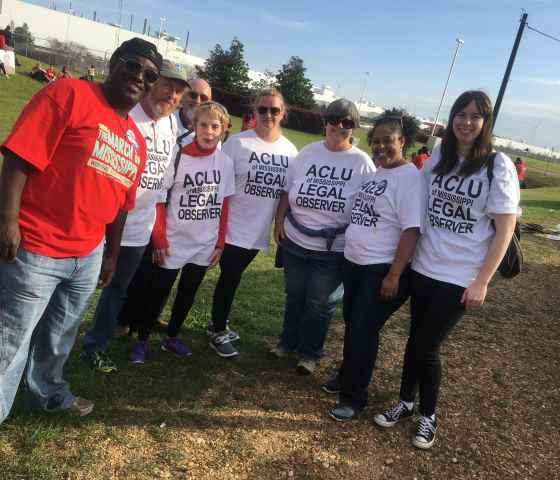Mississippi students, parents, teachers, and youth advocates will attend the 1st Annual ACLU of MS’sFromthe CLASSROOM to the CAPITOL! Students from around the state will participate in morning workshops prior to going to the Capitol to meet state leaders. Leaders will be delivering the MISSISSIPPI STUDENT BILL OF RIGHTS which was created by students to address issues that concern them most and that prevent their success in their schools, communities, and for their future.
The Mississippi Student Bill of Rights was created by students in the summer of 2011 at the 4th Annual MS Youth Hip Hop Summit. “Students are learning ways to become engaged in the decision making process and today is just a beginning,” said Nancy Kohsin-Kintigh, Program Director, ACLU of MS. “Young people are concerned about over reliance on harsh zero tolerance policies, high teen pregnancy rates, and being criminalized by school policies and city ordinances for the way they dress.”
The ACLU of MS’s Youth Justice Project has been engaging students, parents, and youth advocates through Leadership Trainings and Know Your Rights Meetings over the last several years. Students are ready to engage civic leaders and the policies and practices that directly affect them. For many students, this will the first time travelling to the Capitol and meeting their legislators.
Young people across the state of Mississippi are organizing to make Mississippi a better place. The ACLU of MS is committed to ensuring that all Mississippi youth are afforded their civil liberties under the Constitution.
AGENDA - Tuesday, January 15, 2013
10am - MS Department of Education – Auditorium
359 N. West St. – Jackson, MS
1pm - MS State Capitol - South Steps (weather permitting)
Alternative location: MDE or Capitol Rotunda
###
The ACLU of MS’s Statewide Youth Justice Project seeks to end the School to Prison Pipeline by hosting educational forums, working for policy reform, advocacy and litigation. Student’s civil liberties are threatened through Zero Tolerance Polices in our schools and communities. Educate – Don’t Incarcerate.
